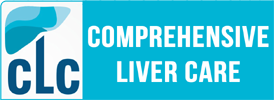The human liver is a vital organ responsible for many crucial functions in the body. From detoxification to bile production, the liver plays a significant role in maintaining our overall health. Given its importance, it is essential to take proactive steps to care for our liver and prevent any potential damage. In this article, we will explore some liver health tips and tricks from a hepatologist – a medical specialist who focuses on the liver.
- Maintain a healthy weight: Being overweight or obese can significantly impact liver health. Excess fat in the body can accumulate in the liver and lead to a condition called fatty liver disease. This can result in inflammation and scarring, impairing liver function. To maintain a healthy weight, focus on a balanced diet consisting of lean proteins, fruits, vegetables, and whole grains. Regular exercise is also crucial to shed excess pounds and keep your liver in top shape.
- Limit alcohol consumption: Alcohol is a leading cause of liver problems, including alcoholic hepatitis and cirrhosis. The liver can only process a limited amount of alcohol at a time. Excessive and prolonged alcohol consumption causes liver cells to die, leading to irreversible damage. It is advisable to stick to moderate alcohol consumption guidelines – no more than one drink per day for women and two drinks per day for men.
- Practice safe sex: Certain viruses, such as hepatitis B and C, can be transmitted through unprotected sex. These viruses, if left untreated, can cause chronic liver infections, leading to liver damage over time. Protect yourself by using barrier methods like condoms and getting vaccinated for hepatitis B. Regular screenings for sexually transmitted infections are also recommended.
- Avoid risky behaviors: Sharing needles or using unsterilized equipment for tattoos or body piercings can expose you to hepatitis viruses and other harmful infections. Always ensure that any medical equipment used on you is sterile and disposable. If you engage in intravenous drug use, seek help from a healthcare professional or addiction specialist to avoid liver damage.
- Vaccinate against hepatitis: Hepatitis A and B vaccines are available to protect against these viral infections. Hepatitis A spreads through contaminated food or water, while hepatitis B is transmitted through blood and body fluids. Vaccination is especially crucial for individuals at higher risk of exposure, such as healthcare workers and those traveling to areas with a high incidence of hepatitis.
- Be cautious with medications and supplements: Some medications and supplements, when taken in excess or without proper medical guidance, can cause liver damage. Non-prescription pain medications like acetaminophen, when taken in high doses, can be toxic to the liver. It is essential to follow the recommended dose and consult your doctor before taking any new medication or supplement.
- Practice good hygiene: Proper hygiene can prevent the spread of infections that can cause liver damage. Wash your hands thoroughly with soap and water after using the bathroom and before handling food. Avoid sharing personal items like toothbrushes or razor blades, as they can transmit blood-borne viruses.
- Get regular check-ups and screenings: Regular visits to a healthcare provider can help detect liver problems early on. Routine blood tests can assess liver function and screen for viral infections like hepatitis. If you have a family history of liver disease or other risk factors, discuss with your doctor about additional screenings or tests that may be necessary.
In conclusion, our liver is a remarkable organ that warrants our utmost care and attention. By following these liver health tips and tricks from a hepatologist, we can take positive steps towards maintaining a healthy liver. Remember to adopt a healthy lifestyle, limit alcohol consumption, practice safe sex and hygiene, and stay up to date with vaccinations and check-ups. Your liver will thank you for it, ensuring a healthy and vibrant life.

